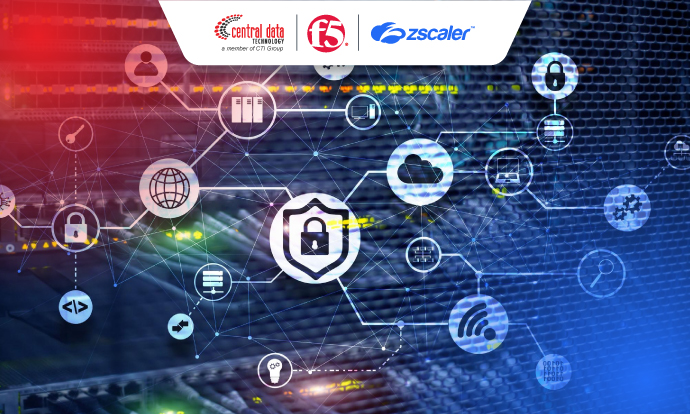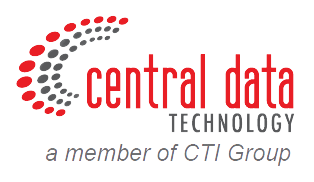
In today’s digital era, network security is a critical element in protecting business assets, which are none other than the company’s data and information. Given the rising cyber threats, the risk of data breaches is also increasing and can lead to significant losses for companies. One proactive step that can be taken is implementing a network security system.
A network security system provides protection for infrastructure and business data through various methods. This article will delve deeply into what network security is, its types, and best practices for network security. Read on below for more details.
What Is Network Security?
Network security encompasses a set of methods or procedures practiced to protect various network devices, such as computers, servers, and wireless networks, from damaging threats. The goal of network security is to safeguard the data or information on your network from breaches.
Several factors can lead to data breaches on a network, such as virus injections, malware attacks, and other types of cyberattacks. These methods are deliberately executed by hackers and can result in severe business losses. Therefore, implementing network security is crucial.
Why Install a Network Security System?
The primary goal of installing a network security system is to prevent theft, but it also offers other benefits that can be advantageous for your business. Here are six key advantages of using network security.
1. Prevent Data Theft
The complexity of cyberattacks can weaken network security, making it easier for hackers to access your data. A reliable network security system can help you better protect sensitive information.
2. Enhance Network System Performance
Network security systems can monitor and maintain network activity regularly, thus ensuring performance remains optimal.
3. Minimize Operational Disruptions
Without network security, cyberattacks can disrupt or even halt your business operations.
4. Prevent System Damage
Beyond data loss, your network hardware and software can also be damaged during a cyberattack.
5. Protect Intellectual Property
Not only personal information, but intellectual property such as company creations or products can also be stolen by hackers without a network security system.
6. Comply with Regulations
Adequate network security systems indicate that you are complying with data security and privacy regulations.
6 Types of Network Security
In general, network security encompasses various types, including internet network protection, device endpoints, and more. Here are six types of network security.
1. Firewall
A network security system that monitors and filters internet traffic to identify and stop suspicious activities.
2. Wireless Security
Protection of wireless networks and the data transmitted from various threats and unauthorized access.
3. Endpoint Security
Practices to protect device endpoints within a network, such as desktops, smartphones, tablets, IoT devices, or servers from cyberattacks.
4. Virtual Private Network (VPN)
Software that allows you to connect to the internet service with private or anonymous data transmission.
5. Patch Management
The process of updating or upgrading software and applications to ensure optimal system performance.
6. Antivirus and Antimalware Software
Security software to protect systems from viruses and malware, working by providing alerts to block such threats when they arise.
While network security provides many benefits for protecting computer networks, it also has drawbacks. What are its advantages and disadvantages?
Advantages and Disadvantages of Network Security Systems
We have explored various types of network security systems, which are certainly very beneficial for protecting business computer networks. Among the many benefits, network security systems also have drawbacks that are important to consider, such as cost, time, and increased risk of cyberattacks.
To help you understand the advantages and disadvantages, see the table below.
| Advantages | Disadvantages |
| Protect data and information stored on computer networks. | Requires significant investment in cost and human resources. |
| Prevent unauthorized access and data breaches. | Implementation can be time-consuming. |
| Enhance productivity with minimized operational disruptions. | Increased risk of cyberattacks. |
The presence of several drawbacks in network security systems requires us to be more meticulous in choosing the right solution. See what aspects of network security need to be considered before implementing the solution below.
Aspects of Network Security to Consider

There are various network security elements that are important to consider, such as access control, network communication, data protection, hardware security, and choosing the right solution. Here are five aspects of network security you should pay attention to.
1. Access Control
Limit and grant access only to specific individuals, such as employees and other internal company members. If your computer network is accessible to external parties, the risk of data breaches can be higher.
2. Network Communication
Every incoming and outgoing data can be protected with specific security systems, such as data encryption.
3. Data Protection
Company data is an asset; therefore, do not let your asset be easily accessed. Use layered passwords and authentication to protect it.
4. Hardware Protection
Although often overlooked, hardware security is also important. Provide strong protection to safeguard your business hardware, such as by providing secure server rooms.
5. Choose a Credible Network Security Solution
To provide comprehensive protection, do not choose just any network security solution. For monitoring traffic and securing internet networks, you can use BIG-IP Advanced Firewall Manager from F5, Zscaler Internet Access, and Zscaler Private Access.
BIG-IP Advanced Firewall Manager from F5, Zscaler Internet Access, and Zscaler Private Access are solutions that can be applied to enhance computer network protection. However, each has different functions.
BIG-IP Advanced Firewall Manager (AFM) from F5
BIG-IP AFM is a firewall solution offered by F5 Networks that can protect against more than 100 threat patterns, including more advanced hardware protection compared to other firewall vendors. Additionally, you can customize policies, integrate, and gain deeper visibility into threat conditions on the network.
Advantages
Here are the benefits of using BIG-IP AFM from F5:
- More accurate threat detection with behavioral analysis
- Consistent security and visibility allowing for follow-up actions
- Ensures network availability, security, and scalability
Features
Here are the key features of BIG-IP AFM:
- Data Center Protection
- Network Protection
- High-Volume Logging Control
- Block Known Threat Actors
- SSH Channel Protection
- S/Gi Firewall for Service Providers
- Flexible Protection for Complex Threats
- Data Center Visibility
Zscaler Internet Access (ZIA) and Zscaler Private Access (ZPA)
Zscaler is a platform known for its zero-trust principle, allowing your employees to work through the internet quickly and securely. This platform can be used in over 150 data centers, positioned alongside cloud services and providers such as Microsoft 365 and AWS.
Zscaler Internet Access (ZIA) and Zscaler Private Access (ZPA) are two cloud security solutions from Zscaler that function differently. ZIA provides protection against cyber threats on the internet or external user protection and prevents data loss through a zero-trust approach. Meanwhile, ZPA focuses on securing access to internal resources, serving as a replacement for traditional VPNs. Like ZIA, ZPA also features remote access tools based on zero-trust principles.
Advantages of Zscaler Internet Access (ZIA)
Here are some benefits of implementing Zscaler Internet Access:
- Consistent protection for hybrid work environments
- Access the internet anytime and anywhere with the same level of security
- AI-based protection against ransomware, zero-day malware, and other attacks
Advantages of Zscaler Private Access (ZPA)
Here are various benefits of implementing Zscaler Private Access:
- Strict access verification without trusting users just because they are within the network
- Minimize the risk of attacks by using private internet connections
- Reduce lateral movement
Features of ZIA and ZPA
- Zero-Trust Network
- Protection from Cyber Threats
- Data Protection
Read More: What is Zero Trust Security and Its Benefits for Your Business Security?
Get BIG-IP AFM from F5, ZIA, and ZPA Exclusively at CDT
Protect your business data now with solutions from F5 and Zscaler available through Central Data Technology (CDT). CDT’s experienced and certified IT team is ready to assist you from the consultation phase to after-sales support in implementing network security solutions from F5 and Zscaler.
Are you Interested in more reliable network protection? Consult your needs by clicking this link.
Author: Anggita Olivia Herman – Content Writer CTI Group

